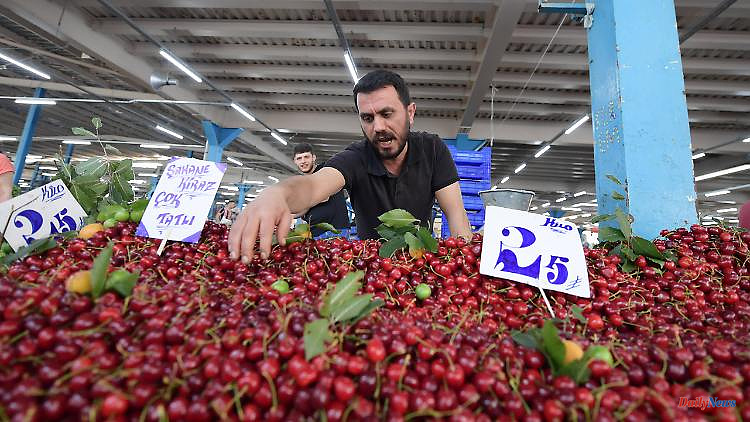In Turkey, prices are rising rapidly. However, inflation may be even more severe than stated. Economists and analysts doubt the official numbers.
Inflation in Turkey keeps rising. In June, the cost of living increased by 78.6 percent compared to the same month last year, according to the national statistics office Turkstat. In May, the inflation rate was around 74 percent.
Inflation has thus reached its highest level since autumn 1998. However, they may be even higher than officially stated. Opposition politicians, economists and financial analysts accuse the government of glossing over the figures and assume that the rate will be significantly higher.
President Recep Tayyip Erdogan fired the head of the statistics agency in February. Under the new boss, she no longer publishes average prices for individual items, but only for product groups. That makes you suspicious.
To put this in context: The Istanbul-based inflation research group Enag estimates inflation for June at around 175 percent. Swedish analyst Erik Meyersson has compared the official inflation figures with the cost of living in Istanbul, published by the metropolis' chamber of commerce. The latter rose by more than 94 percent in June and was therefore much stronger. "That doesn't necessarily increase Turkstat's credibility," Meyersson said.
According to the official figures, transport (which includes petrol, for example) and food in particular have become significantly more expensive. Manufacturing costs also continued to rise. According to the statistics office, the prices that producers receive for their goods rose by around 138 percent over the year. Producer prices are included in consumer prices with a time lag and only partially.
The inflation rate in Turkey is driven by several factors. The weak national currency, the lira, has been causing prices to rise significantly for a long time, since goods imported into Turkey are becoming more expensive as a result. The prices of many raw materials are also rising sharply. The lira lost 44 percent against the dollar in 2021 and is already down 21 percent this year.
The central bank has nevertheless lowered the key interest rate significantly. Erdogan had made the - formally independent - central bank obedient by throwing out three heads one after the other and finding a governor in Sahap Kavcioglu, who met the head of state's demand for lower interest rates. The key interest rate in Turkey is currently 14 percent. In March last year it was 19 percent.
Erdogan describes interest rates as the "mother of all evils" and claims, contrary to economic doctrine, that high interest rates cause high inflation and low interest rates cause low inflation. The background: Higher interest rates slow down economic growth. However, Erdogan wants to avoid the economy losing momentum. Because presidential elections are planned for June next year, and he wants to make his re-election possible with strong economic growth.
Erdogan is betting that high inflation will soon come down. The principle of hope also applies to the central bank: Most economists expect that they will stick to their unorthodox monetary policy and that they will not raise interest rates in the foreseeable future.












